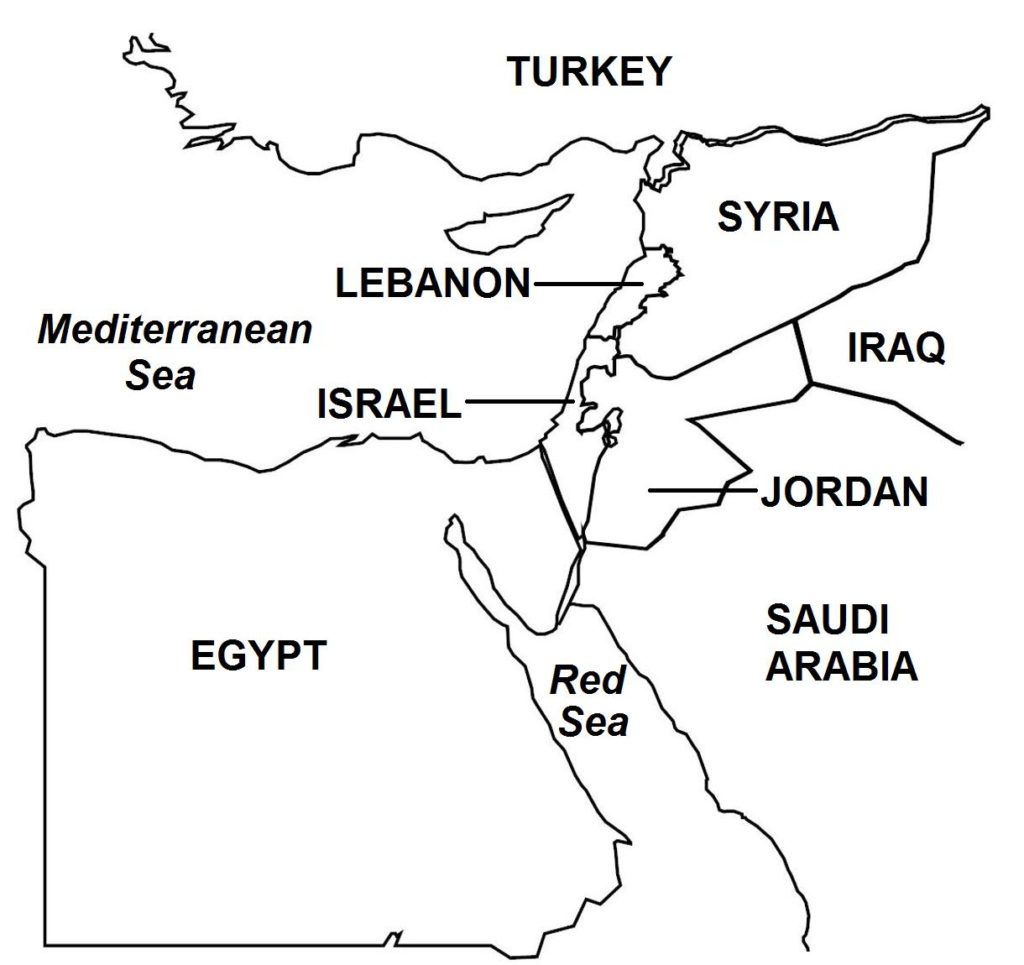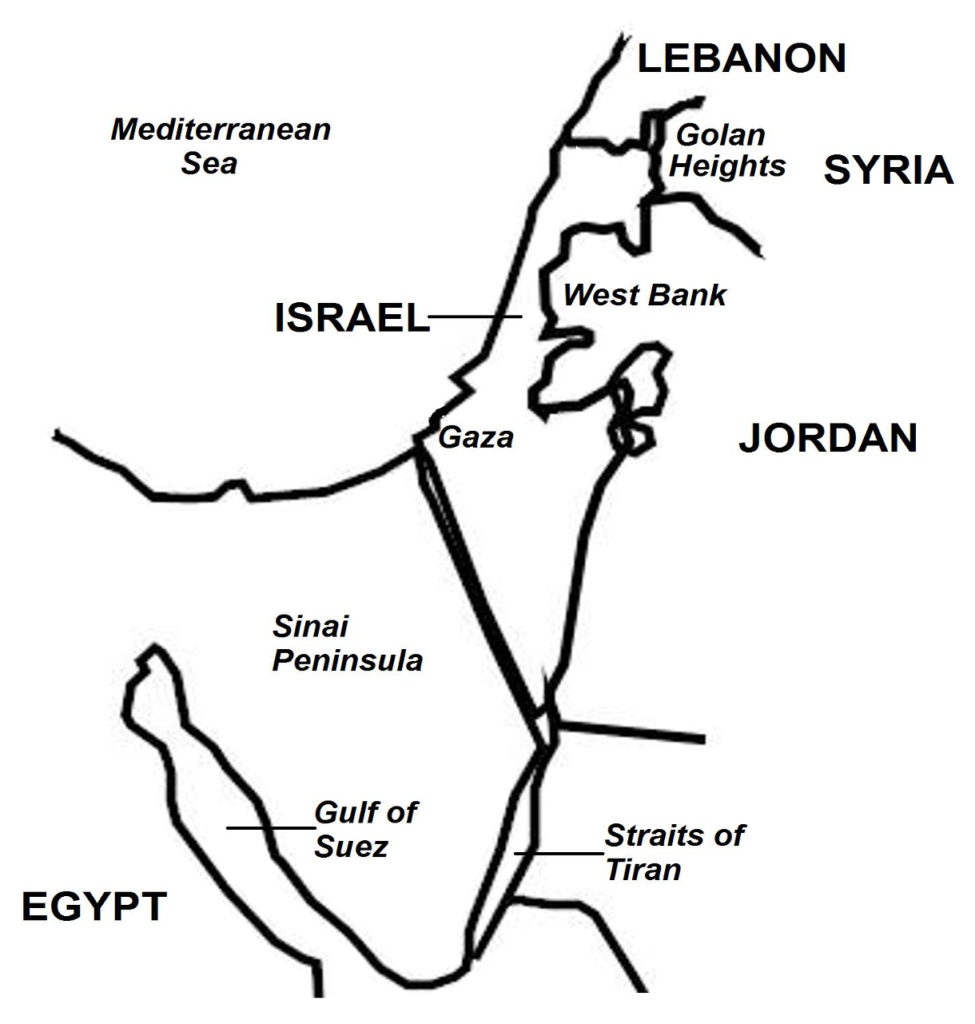On May 22, 1967, Egypt announced that the Straits of Tiran would be closed to “all ships flying Israeli flags or carrying strategic materials”, to take effect on May 23. Some 90% of Israeli oil passed through the Straits of Tiran. Oil tankers that were due to pass through the straits were delayed. Israel had previously warned that the closure of the waterway would be an act of war.

The waterway’s closure greatly increased tensions between the Arab states and Israel. Just one week earlier, May 15, 1967, Egypt had ordered the United Nations Emergency Force (UNEF) to leave the Sinai Peninsula; the UNEF had been tasked to preserve the peace in the territory since the end of the Suez Crisis (October-November 1956).
Background The 1948 Arab-Israeli War produced tensions between Israel and surrounding Arab countries. Then in 1956, Egypt seized control of the Suez Canal, which triggered the Suez Crisis, a conflict where Britain and France sent their forces to Egypt to take back control of the Suez Canal. Israel joined the Anglo-French operation by invading and capturing the Sinai Peninsula. The United Nations, or UN, subsequently forced Israel to withdraw its forces from the Sinai Peninsula.
In the 1960s, tension rose again in the Middle East, initially between Syria and Israel. Palestinian militants belonging to the Palestinian Liberation Organization, or PLO, Fatah, and other nationalist guerilla movements, carried out armed raids and sabotage operations in Israel from bases in Syria, Jordan, and southern Lebanon. In the first three months of 1967, some 270 armed incidents occurred between Israel and its Arab neighbors. Israeli planes struck at suspected Palestinian bases inside Syria. Israel and Syria also were locked in a dispute regarding the water resources in the Jordan River, ultimately leading Israel to launch air strikes against Syrian water facilities in August 1965.
Border clashes also broke out intermittently. Israeli planes attacked Syrian military bases and vital public infrastructures, and shot down a number of Syrian planes in air battles. In April 1967, Israeli and Syrian forces clashed in a major battle that included infantry, armored, artillery, and air force units.
Persistent PLO infiltrations from Syria prompted Israel, in May 1967, to issue a warning to Syria of Israeli retaliation. Then, the Soviet Union released an intelligence report (later discovered to be erroneous) to the Arabs that indicated an Israeli troop buildup along the Syrian border. As a result, Syria also massed its forces along the border with Israel.
Egypt was bound to a defense agreement with Syria and Jordan. On May 18, the Egyptian government expelled the UN peacekeepers in the Sinai, and sent army units to the Egypt-Israel border, thereby militarizing the Sinai Peninsula. A few days later, Egypt prevented Israel commercial vessels from entering the Straits of Tiran. Israel viewed the blockade as a provocation for war.
On May 28, Israel prepared for war with a call up of reservists. Three days later, foreign embassies in Israel instructed their citizens to leave in anticipation for war. On June 1, Israel finalized its war plans. Then in a meeting held on June 4, Israel’s civilian and military leaders set the date for war for the following day, June 5.
Israel fought the Six-Day War in three sectors: against Egypt in the Gaza Strip and Sinai Peninsula, against Jordan in the West Bank, and against Syria in the Golan Heights.

War On the morning of June 5, Israeli planes attacked Egyptian airbases in the Sinai Desert and in Egypt proper. Hundreds of Egyptian planes, nearly half of Egypt’s Air Force, were destroyed on the ground. Israeli air strikes continued the whole day, knocking out the Egyptian Air Force, which was the strongest among the Arab countries. In one coup, Israel gained air domination, which decided the outcome of the war. The Six-Day War was on.
